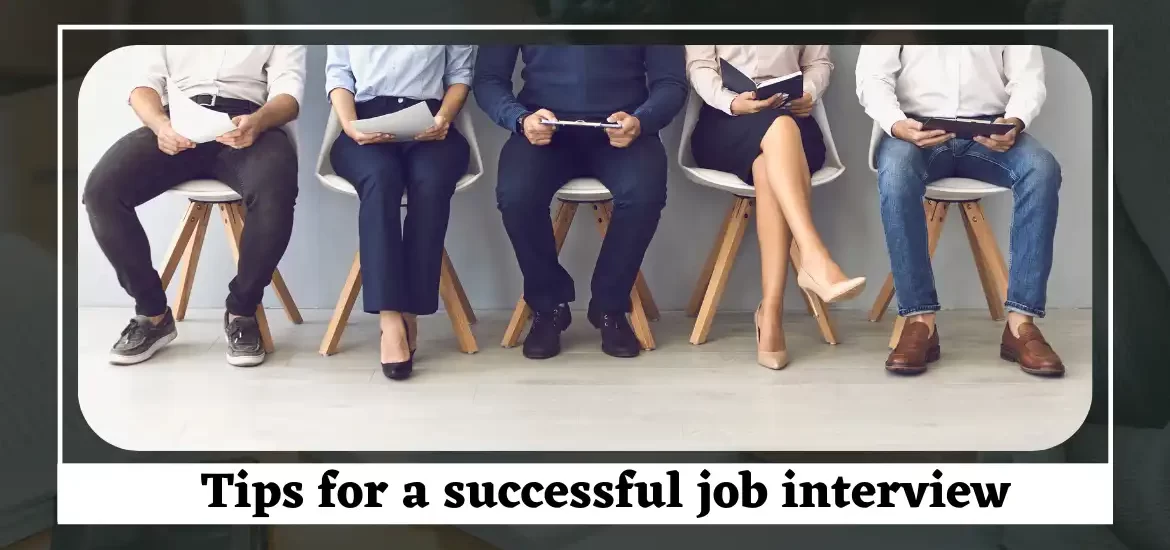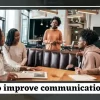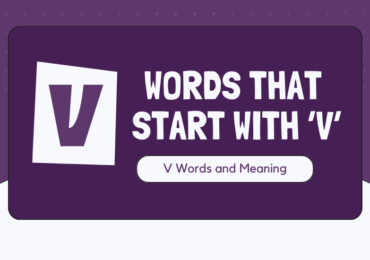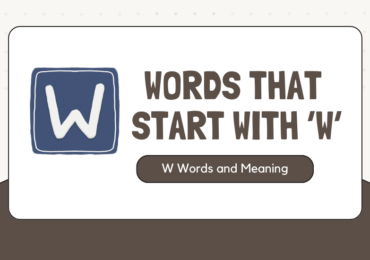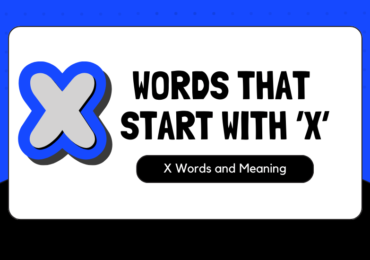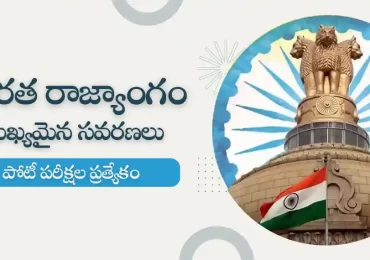A job interview is your chance to make a good impression and land your dream job. But with so much competition, it can be tough to stand out from the crowd. That's why it's important to be prepared and know what to expect.
An interview is a conversation between a job seeker and a potential employer. The purpose of an interview is for the employer to learn more about the job seeker and to determine if they are a good fit for the position. The interview typically begins with the interviewer introducing themselves and the company. The interviewer will then ask the job seeker questions about their work experience, education, and skills. The job seeker will also have the opportunity to ask questions about the company and the position.
An interview usually takes place in person, but it can also be conducted over the phone or video chat. The interview will typically start with the interviewer introducing themselves and the company. The interview may be structured or unstructured. A structured interview is when the interviewer asks the same questions to all candidates. An unstructured interview is when the interviewer asks different questions to each candidate. The interview may also be one-on-one or panel. A one-on-one interview is when the job seeker meets with one interviewer. A panel interview is when the job seeker meets with a group of interviewers.
Different types of job interviews
There are many different types of job interviews, each with its own unique purpose and format. Be prepared for a variety of interview formats. Be prepared for anything. Some common interview formats include:
- Screening interview: This is usually the first interview you will have with a company. The purpose of this interview is to get to know you and your qualifications and to see if you are a good fit for the position. This interview may be conducted over the phone or in person.
- Behavioral interview: This type of interview focuses on your past experiences and how they relate to the position you are applying for. The interviewer will ask you questions about specific situations you have encountered in your work or personal life and how you handled them.
- Situational interview: This type of interview is similar to a behavioral interview, but the interviewer will ask you hypothetical questions about how you would handle different situations in the workplace.
- Technical interview: This type of interview is typically used for positions that require specific skills or knowledge. The interviewer will ask you questions about your technical skills and knowledge.
- Group interview: This type of interview involves several candidates interviewing together. The interviewer will ask questions to the group as a whole or to individual candidates.
- Panel interview: This type of interview involves several interviewers asking you questions. This type of interview is often used for senior-level positions.
- Virtual interview: This type of interview is conducted over video chat. It is becoming increasingly common as more and more companies are adopting remote work arrangements.
1. Research before a job interview
Researching the company and the position you are interviewing for is one of the most important things you can do to prepare for a job interview. By taking the time to learn about the company, you will be able to answer questions intelligently and show that you are genuinely interested in the job.
- Learn about the company :This includes their history, mission, products or services, and culture. You can find this information on the company's website, social media pages, and news articles. Once you have a good understanding of the company, you can start to research the specific position you are interviewing for.
- Research the position you're interviewing : This includes the responsibilities, skills, and experience required for the job. You can find this information on the job description, the company's website, and online job boards.
- Research the interviewer : If you can find out who your interviewer is, you can research them on LinkedIn and other social media platforms. This will help you understand their background and interests, which you can then use to connect with them during the interview.
- Talk to people who work at the company : If you know anyone who works at the company, ask them about their experience. They can give you valuable insights into the company culture and what it's like to work there.
By following these tips, you can ensure that your research is thorough and informative. This will help you make a good impression on the interviewer and increase your chances of getting the job.
2. Be prepared to answer common interview questions
One of the best ways to prepare for a job interview is to be prepared to answer common interview questions. There are a few common interview questions that you can expect to be asked. By being prepared to answer these questions, you can increase your chances of making a good impression on the interviewer.
- Tell me about yourself : This is a classic interview question that is designed to get you talking about yourself and your qualifications. Be prepared to talk about your education, work experience, and skills.
- Why are you interested in this position? : This question is your chance to explain why you are interested in the job and why you are a good fit. Be sure to highlight your skills and experience that are relevant to the position.
- What are your strengths and weaknesses? : This question is designed to get you to think about your strengths and weaknesses as a candidate. Be honest about your strengths and weaknesses, but focus on your strengths and how they will benefit the company.
- Why did you leave your last job? : This question is designed to get you to talk about your reasons for leaving your previous job. Be honest about your reasons, but be sure to frame them in a positive light.
- What are your salary expectations? :This question is usually asked towards the end of the interview. Be prepared to answer this question, but be sure to do your research on the salary range for the position before you give a number.
- Do you have any questions for me? : This is your chance to ask the interviewer questions about the company or the position. Be sure to have a few questions prepared, and make sure they are thoughtful and relevant. here are some more questions that you may be asked in a job interview.
What are your career goals?
What can you contribute to our company?
What are your thoughts on the company's products or services?
What do you know about our company culture?
What are your thoughts on our competitors?
What are your thoughts on working under pressure?
How do you handle conflict?
How do you stay motivated?
What are your salary expectations?
What are your availability?
What are your strengths and weaknesses?
Why should we hire you?
What are your thoughts on teamwork?
What are your thoughts on diversity and inclusion?
Do you have any questions for me?
3. Dress professionally
The way you dress for a job interview can make a big difference in the interviewer's impression of you. First impressions matter, so it's important to dress in a way that is professional and appropriate for the position you are interviewing for.
- Choose clothes that are clean, pressed, and well-fitting. Avoid anything that is too casual or too revealing.
- Stick to neutral colors such as black, navy, or gray. These colors are generally considered to be more professional.
- Avoid wearing anything too flashy or distracting. You want the interviewer to focus on your qualifications, not your clothes.
- Pay attention to the details. Make sure your hair is neat, your nails are clean, and your shoes are polished.
- For a corporate interview, a suit is always a safe choice. You can also wear a skirt or dress pants with a blazer.
- For a creative interview, you can dress in a more casual style, but still be mindful of the company culture. Avoid wearing anything too revealing or too casual.
- For a tech interview, you can dress in a more relaxed style, but still be professional. Jeans and a button-down shirt are perfectly acceptable.
Business formal : This is the most formal dress code and is typically required for jobs in law, finance, and other professional fields. Men should wear a suit and tie, and women should wear a skirt or dress suit.
Business casual : This is a more relaxed dress code that is often appropriate for jobs in marketing, sales, and other customer-facing roles. Men can wear a button-down shirt and slacks, and women can wear a skirt or pantsuit.
Casual : This is the least formal dress code and is typically only appropriate for jobs in creative fields such as advertising or design. Men can wear jeans and a button-down shirt, and women can wear jeans or a skirt with a blouse.
Research the company culture : If you can, try to find out what the company's dress code is before your interview. This will help you choose the right clothes for the occasion.
Ask the interviewer about the dress code : If you're not sure what to wear, it's always better to ask the interviewer directly. This will show that you're taking the interview seriously and that you're interested in the position.
No matter what the dress code, it's always best to err on the side of caution and dress more formally than you think you need to. You can always dress down if you feel overdressed, but it's much harder to dress up if you're underdressed.
4. Be confident On an Interview
A job interview can be a nerve-wracking experience, but it is important to project confidence in order to make a good impression on the interviewer. Confidence is a key quality for success in many areas of life, including job interviews, relationships, and personal goals. But what does it mean to be confident? And how can you become more confident?.
- Believe in yourself : This is the most important step to being confident. If you don't believe in yourself, no one else will. So start by taking some time to think about your strengths and accomplishments. What are you good at? What have you achieved? Once you start to believe in yourself, it will be easier to project confidence to others.
- Set realistic goals : When you set goals that are too challenging, it can be easy to feel discouraged and lose confidence. So start by setting small, achievable goals that you can build on over time. As you reach your goals, you will start to feel more confident in your abilities.
- Take care of yourself : When you take care of your physical and mental health, you are more likely to feel confident. Make sure to get enough sleep, eat healthy foods, and exercise regularly. You should also find ways to relax and de-stress, such as yoga, meditation, or spending time in nature.
- Practice positive self-talk : The way you talk to yourself has a big impact on your confidence. So start to pay attention to your self-talk and challenge any negative thoughts. Replace them with positive statements, such as "I can do this" or "I am capable."
- Take risks : Stepping outside of your comfort zone can be scary, but it is also a great way to build confidence. When you take risks and succeed, it can help you feel more capable and in control. So don't be afraid to try new things and put yourself out there.
- Visualize yourself being confident : Take some time to visualize yourself in a situation where you need to be confident, such as giving a presentation or networking with new people. See yourself feeling calm, relaxed, and in control.
- Surround yourself with positive people : The people you spend time with can have a big impact on your confidence. So surround yourself with people who believe in you and support you.
- Take breaks when you need them : If you are feeling overwhelmed or stressed, take a break. Go for a walk, listen to some music, or do something else that you enjoy. Taking breaks can help you clear your head and come back to the situation feeling more confident.
Building confidence takes time and effort, but it is definitely possible. By following these tips, you can start to feel more confident in yourself and your abilities. Remember, confidence is a journey, not a destination. There will be times when you feel more confident than others. But the important thing is to keep working on it and never give up on yourself.
5. Be Yourself on an Interview
A job interview can be a nerve-wracking experience, but it is important to be yourself in order to make a good impression on the interviewer. Here are some tips on how to be yourself on an interview.
- Be authentic. Don't try to be someone you're not. The interviewer will be able to tell if you're being fake.
- Be honest. Answer questions honestly, even if they are difficult.
- Be positive. Show the interviewer that you are a positive person to be around.
- Be enthusiastic. Show the interviewer that you are excited about the position and the company.
- Be genuine. Be yourself and let your personality shine through.
- Relax and be yourself. The more relaxed you are, the more natural you will be.
- Smile and make eye contact. This will make you appear more confident and approachable.
- It's okay to be nervous. Everyone gets nervous before an interview. Just try to relax and focus on being yourself.
- Don't be afraid to ask for clarification. If you don't understand a question, ask the interviewer to clarify it.
- Don't be afraid to talk about your weaknesses. Everyone has weaknesses. The important thing is to be honest about them and to show how you are working to improve them.
- Don't be afraid to sell yourself. This is your chance to show the interviewer why you are the best candidate for the job.
- When the interviewer asks you to tell them about yourself, don't just recite your resume. Talk about your personal interests, your hobbies, and what makes you unique.
- When the interviewer asks you about your strengths and weaknesses, be honest and specific. Don't try to sugarcoat your weaknesses or pretend that you don't have any.
- When the interviewer asks you about a time when you faced a challenge, talk about how you overcame it. Show the interviewer that you are a problem solver and that you can handle difficult situations.
- When the interviewer asks you why you are interested in the position, be specific. Talk about what you like about the company and the position, and why you think you would be a good fit.
- When the interviewer asks you any other questions, be yourself and let your personality shine through. Don't try to be someone you're not.
Remember, the goal of an interview is to get to know you better and to see if you would be a good fit for the company and the position. By being yourself, you can increase your chances of making a good impression and getting the job.
6. Be prepared to ask questions
It is important to be prepared to ask questions in an interview. Asking questions shows that you are interested in the position and the company. It also gives you a chance to learn more about the opportunity and to see if it is a good fit for you. Here are some questions you can ask.
- What are the challenges and opportunities of this position?
- What are the company's goals for the next year?
- How would you describe the company culture?
- What are the opportunities for growth and development in this role?
- When can I expect to hear back from you?
- What are the most important responsibilities of this position?
- What are the challenges facing the company?
- What are your expectations for the ideal candidate?
- What are the next steps in the hiring process?
You can also ask questions that are specific to the company or the position. For example, if you are interviewing for a marketing position, you could ask about the company's marketing strategy. Or, if you are interviewing for a sales position, you could ask about the company's sales goals. The most important thing is to be prepared to ask questions that are relevant to the position and the company. By asking thoughtful questions, you can show the interviewer that you are interested in the opportunity and that you are a good fit for the company.
- Prepare a list of questions in advance. This will help you avoid being caught off guard and will give you time to think about the best way to ask the questions.
- Make sure your questions are relevant to the position and the company. Don't ask questions that are too personal or that don't make sense.
- Be specific. Don't ask general questions like "What is the company culture like?" Instead, ask questions like "What are the company's goals for the next year?" or "What are the opportunities for advancement in this position?"
- Be open-ended. Don't ask questions that can be answered with a simple yes or no. Ask questions that will allow the interviewer to elaborate on their answers.
- Listen carefully to the interviewer's answers. This will help you follow up with additional questions or clarify any points that you are not clear about.
Here are some additional tips that you can follow
- Arrive early : This will give you time to relax and collect your thoughts before the interview.
- Bring copies of your resume and references : This shows the interviewer that you are prepared and organized.
- Be polite and respectful : This shows the interviewer that you are a professional and that you are interested in the job.
- Speak clearly and confidently : Speak slowly and clearly, and avoid fidgeting or making nervous gestures.
- Follow up after the interview : Send a thank-you note to the interviewer within 24 hours of the interview. This shows that you are still interested in the position and that you appreciate the interviewer's time.
Following these tips will help you increase your chances of having a successful job interview. But remember, the most important thing is to be yourself and to be confident. If you can do that, you'll be well on your way to landing your dream job.

